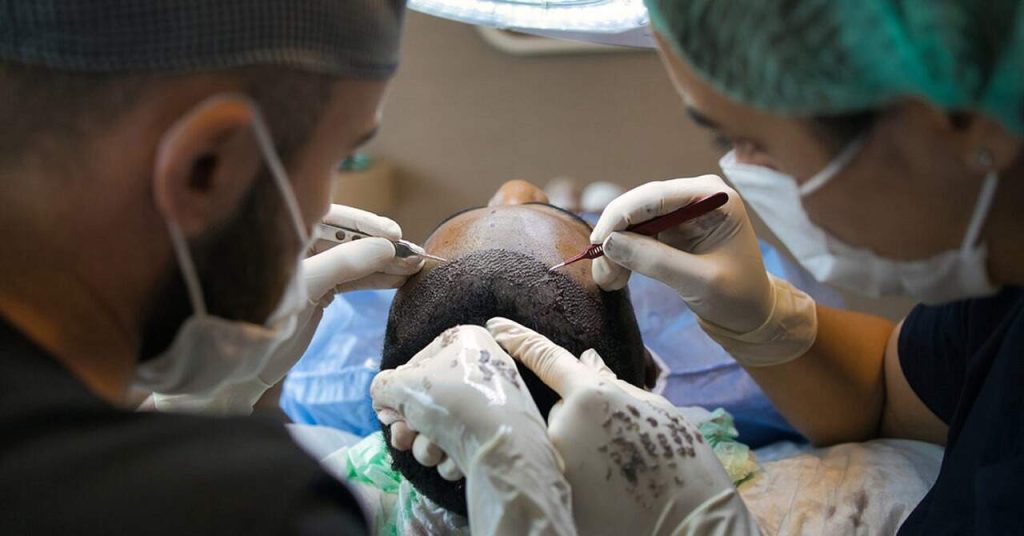Have you just gone through a severe hair transplantation? Wondering about how should you take care of your scalp after surgery? You might have pain, itching, infection, wound dehiscence or skin necrosis. The side effects entirely depend upon how your body responds. However, taking proper care can help you get the desired outcomes for hair loss problem.
In this blog, you will get all the information on how you should take care of yourself to recover as soon as possible. Let’s dive in and smoothen your recovery process.
The Do’s of Hair Transplant Aftercare
A thought that hover every patient’s mind is what should you do after a hair transplant? Are you also thinking of the same? Care is required to fasten the hair transplant recovery procedure. Here are some tips that will help you to get a smooth recovery.
1. Follow Your Surgeon’s Instructions
The leading hair transplant surgeon will provide you with aftercare instructions that are personally specified according to your case. These instructions are crucial, so make sure to follow them diligently. They may include guidelines on washing your hair, avoiding certain activities, and taking prescribed medications.
2. Keep Your Head Elevated
Keeping your head straight while sleeping is necessary for the first few nights after the procedure. It helps reduce swelling and promotes better blood circulation to the transplanted follicles.
3. Be Gentle With Your Scalp
Your scalp is more sensitive than ever during the initial days after the surgery. Avoid unnecessary touching or scratching your scalp. Be cautious while washing your hair, and use a mild, non-alcoholic shampoo your surgeon recommends.
4. Protect Your Scalp From the Sun
Direct sun exposure can damage the grafts and the sensitive scalp. Always wear a hat or scarf or carry an umbrella when you go out. You have to continue this procedure for the initial few weeks.
5. Stay Hydrated and Eat a Balanced Diet
Everyone needs a healthy and balanced diet, but it becomes more crucial after a complex surgery. Water and a diet rich in vitamins, minerals, calcium, iron, protein, and other nutrients can boost healing.
6. Resume Light Exercise Gradually
Many people have a question about when they can start physical exercises again. It is completely prohibited to exercise during the first few weeks after the surgery. You should resume your physical activity with light exercises such as walking according to your surgeon’s guidance.
7. Keep Stress Levels in Check
High stress levels can affect your recovery and potentially lead to hair loss. Using relaxation methods to manage stress while recuperating, such as yoga or meditation.
The Don’ts of Hair Transplant Aftercare
Now that you know how you should take care of your scalp. Let’s explore what you should not do after a hair transplant. What can ruin a hair transplant?
Here are 6 tips that you should not do after the hair transplant.
1. Avoid Tight Headwear
Refrain from wearing tight hats, helmets, or any headwear that puts pressure on the graft sites. This can disrupt blood flow and damage the newly transplanted hair follicles.
2. Consult Your Surgeon Before Using Hair Products
Before using any hair product, consult your surgeon. They can advise you on which hair product is best suitable for you and which products you should avoid. Only use the products suggested by your hair transplant surgeon; otherwise, you might suffer various side effects.
3. Avoid Using Hot Showers
Exposing your scalp to high heat can lead to excessive sweating and swelling, potentially harming the grafts. Stick to lukewarm showers and avoid steam rooms for at least a month post-transplant.
4. Say No to Swimming Pools
Chlorine, hydrochloric acid, Cyanuric acid, and other chemicals in swimming pools can be harsh on the scalp and grafts. These can make your grafts difficult to settle at their new positions. Avoid these environments until your surgeon gives you the green light.
5. Don’t Rush Back Into Your Daily Routine
After the surgery, taking time off work and other daily activities is essential for your body to heal correctly. Rushing back into your routine may cause unnecessary stress on your body and grafts.
6. Avoid Excessive Alcohol Consumption
In addition to the immediate post-surgery period, it’sa good idea to limit alcohol consumption in the weeks following the procedure. Alcohol consumption can thin the blood and increase the graft site bleeding risk.
Conclusion
A hair transplant is a life-changing procedure. Proper aftercare is essential for the healthy recovery of the hair. The following dos and don’ts outlined in this blog can help you accomplish the best results out of the procedure and enjoy a smoother recovery process.
Remember that every individual’s recovery may vary, so always consult your hair transplant surgeon for personalized advice and guidance tailored to your case. With patience, care, and commitment to aftercare, you can get the best outcomes and regain your confidence that was lost somewhere.
